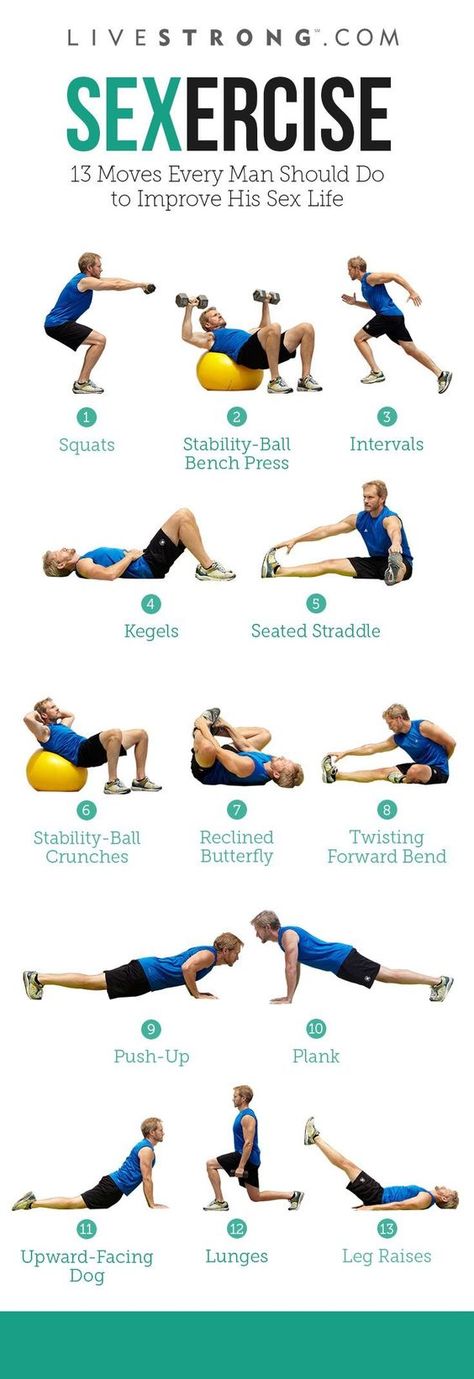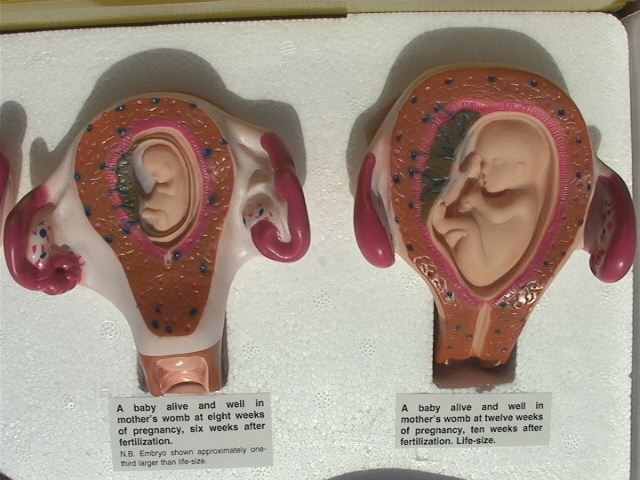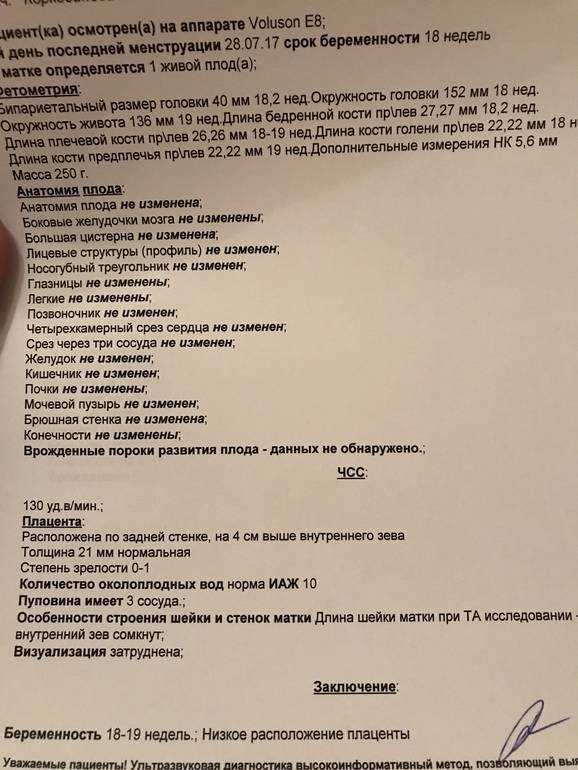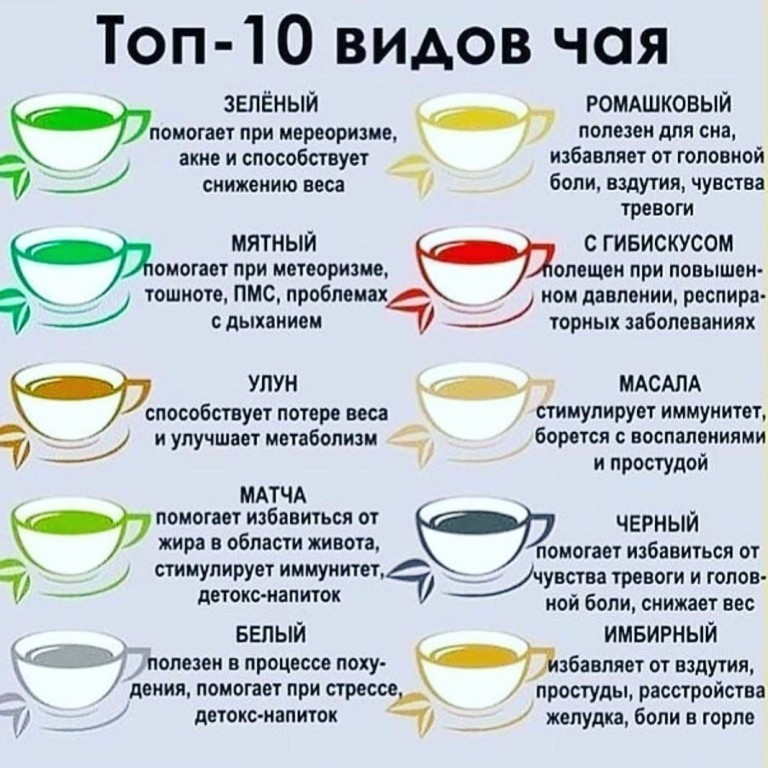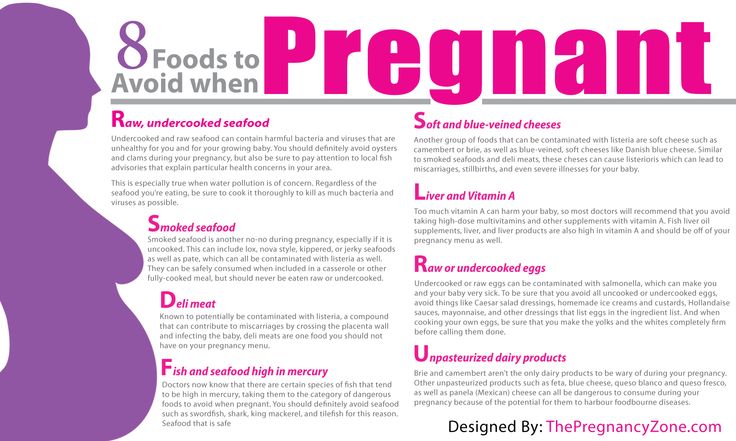Pregnant women should avoid
Things to avoid during pregnancy
There are a few products or lifestyle habits pregnant women and their partners should be cautious of during pregnancy. From hair highlights to house paints, learn more about what's safe for your baby.
Acupuncture and massage
While some complementary therapies, such as acupuncture and massage, are generally considered to be safe during pregnancy, there are still times during pregnancy when they should not be used. For example, your abdomen should not be massaged during the first 3 months of pregnancy.
It is generally safe to have acupuncture when you are pregnant. You should look for a qualified acupuncturist who has extensive training and experience with pregnant women. Tell your acupuncturist you are pregnant because certain acupuncture points cannot be used safely during pregnancy.
If you’re considering using a complementary therapy, it’s important to tell your doctor or midwife. If you then decide to use a complementary therapy, you should always consult a qualified practitioner who is registered with the Australian Health Practitioner Regulation Agency (APHRA).
Cats
Toxoplasmosis is a common infection that occurs in most birds and mammals, including humans, and can cause serious problems in pregnancy. The parasite called Toxoplasma gondii (T. gondii) can be found in cat faeces or soil — or cat litter that is contaminated with infected cat faeces.
The risk of getting toxoplasmosis when you're pregnant is very low. But if do you get toxoplasmosis in the early stages of pregnancy, the risk of miscarriage is increased and it can cause blindness and brain damage in an unborn baby.
Signs of toxoplasmosis include mild flu-like symptoms, such as high temperature, sore throat and aching muscles. However, in most cases, toxoplasmosis doesn't cause any symptoms.
Pregnant women are not routinely screened for toxoplasmosis. It's therefore important that you know how to prevent infection.
Cleaning products
Check the labels of cleaning products to make sure there are no safety warnings for pregnant women.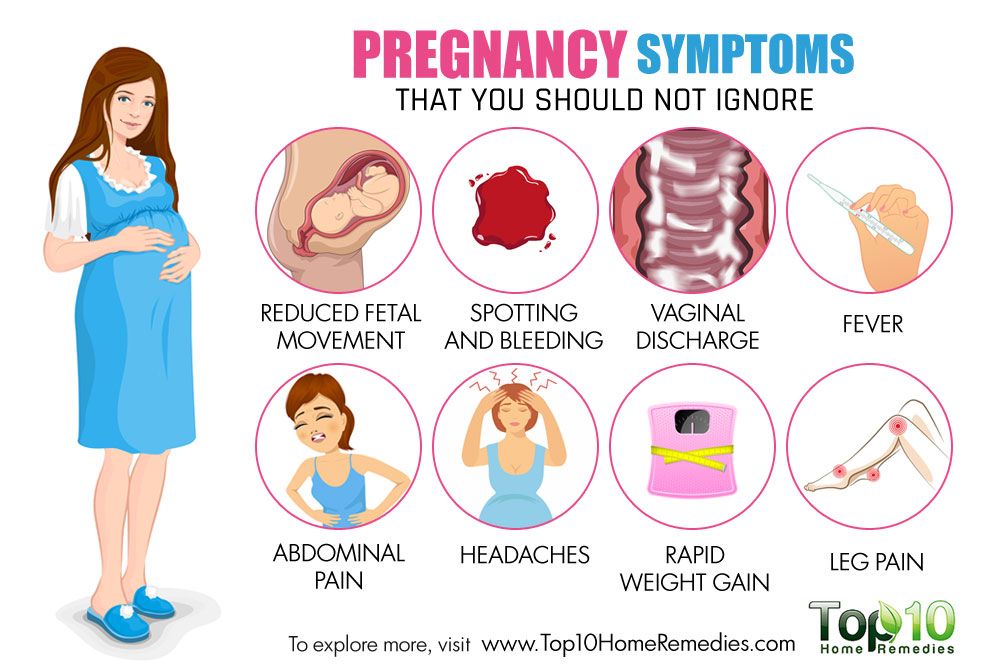 If you use cleaning products, glues, paint or any other household chemicals, follow the safety directions on the label. Make sure the room is well ventilated when you are cleaning — open windows and doors.
If you use cleaning products, glues, paint or any other household chemicals, follow the safety directions on the label. Make sure the room is well ventilated when you are cleaning — open windows and doors.
Some moth balls and toilet deodorant cakes contain a substance called naphthalene. Exposure to very large amounts of naphthalene can damage blood cells, leading to a condition called haemolytic anaemia. Symptoms that may occur after exposure to large quantities of naphthalene include fatigue, loss of appetite, nausea, vomiting and diarrhoea. Newborn babies are particularly at risk if they are exposed to naphthalene.
Exercise
It’s great to be active and stay fit while you’re pregnant, but check with your midwife or doctor first to make sure there are no health problems that prevent you from exercising. If there are no problems, try to do 30 minutes of moderate exercise, like walking or swimming, on most days of the week.
Regular exercise can:
- help you stay at a healthy weight
- help you relax
- help make you stronger and fitter — good for coping with pregnancy, labour and being a parent
- help decrease discomforts like back pain and varicose veins that affect some pregnant women
Fake tan
The active ingredient in fake tan is dihydroxyacetone (DHA), a non-toxic substance that reacts with cells in the outermost layer of the skin and produces a brown pigment (colour) called melanoidin.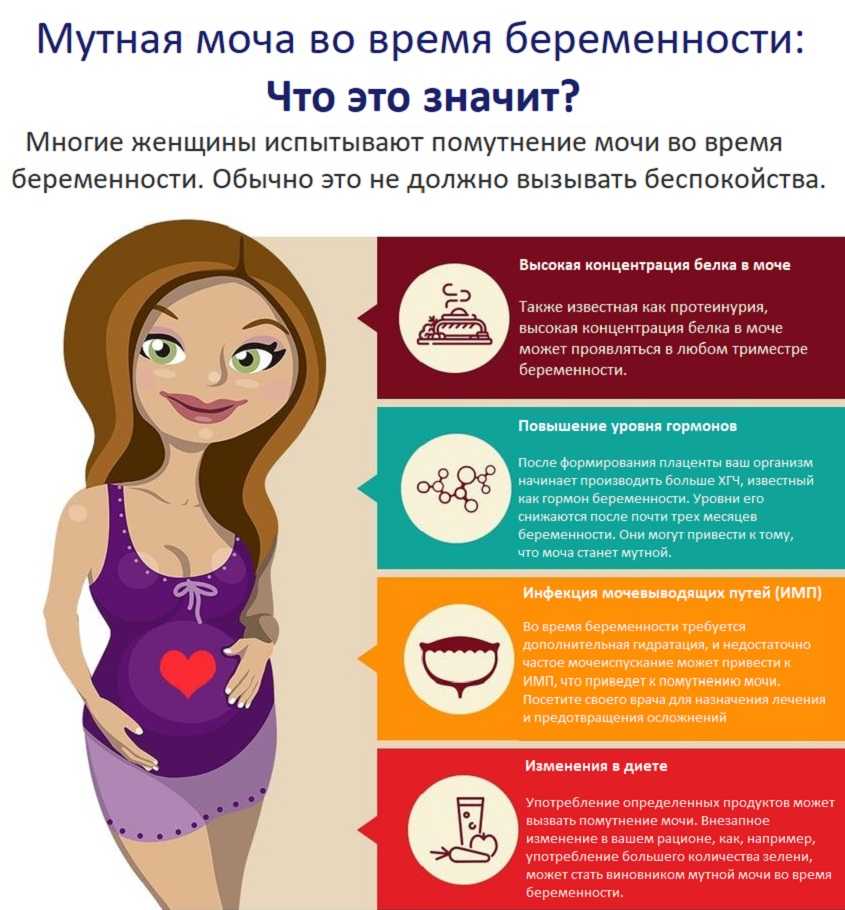 The DHA does not go beyond the outer layer of skin and therefore is not absorbed into the body. It is fine to use fake tan creams and lotions while you are pregnant.
The DHA does not go beyond the outer layer of skin and therefore is not absorbed into the body. It is fine to use fake tan creams and lotions while you are pregnant.
It is not a good idea to have a spray tan while you are pregnant because you might inhale some spray, and it is not know whether this is dangerous for the baby. Also, fake tans can sometimes cause an allergic reaction. Pregnancy changes your hormone levels and can make the skin more sensitive than normal. If you do use fake tan, always test the product on a small area of skin first to see if you have a reaction.
Although some fake tans contain sun protection, the SPF (sun protection factor) is usually very low. Increased skin sensitivity when pregnant can mean you’re more likely to burn, so use a high protection cream (minimum SPF 30) and stay out of the sun as much as possible.
No one should use tanning pills or tanning injections. Tanning pills contain high amounts of betacarotene and/or a chemical called canthaxanthin that have been linked with dangerous side effects, including damage to the eyes and the liver.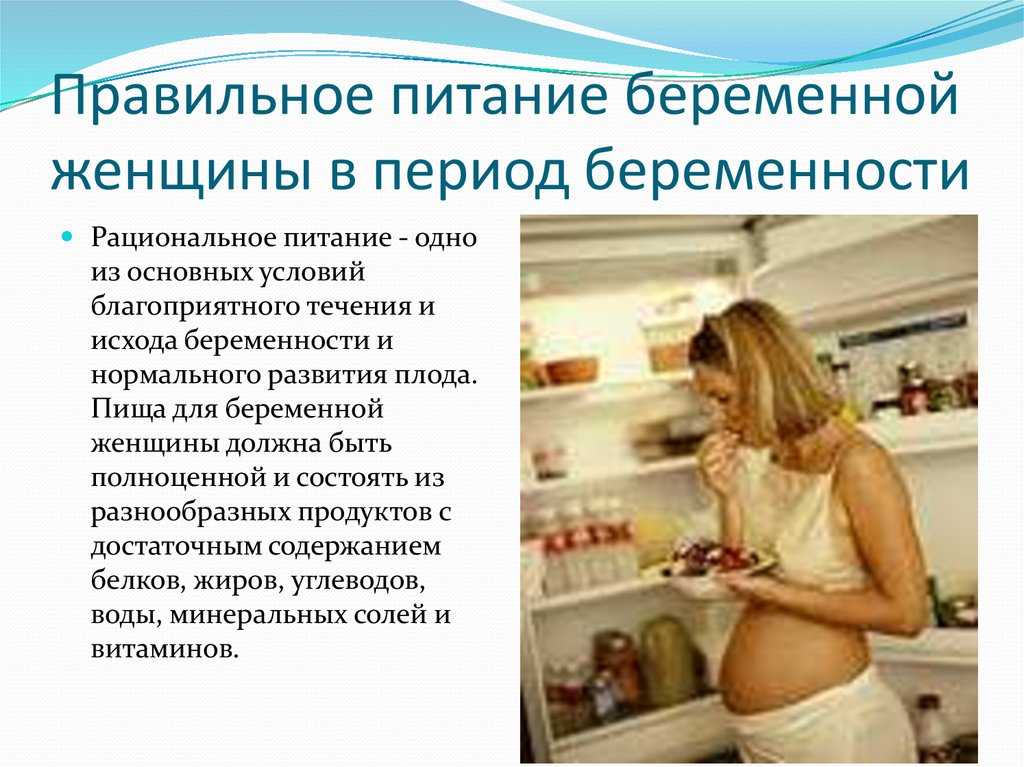 Injections containing Melanotan, which increases melanin in the skin, are not approved by the Therapeutic Goods Administration (TGA) for tanning, and it is classified as a prescription-only medicine.
Injections containing Melanotan, which increases melanin in the skin, are not approved by the Therapeutic Goods Administration (TGA) for tanning, and it is classified as a prescription-only medicine.
Food
There are some foods you should avoid when you're pregnant because they might make you ill or harm your baby. Learn more about the foods you should avoid, or that you need to take extra care with when you're pregnant here.
Alcohol
There is no safe level of alcohol during pregnancy. Whether you are planning a pregnancy, already pregnant or breastfeeding, not drinking is the safest option as alcohol can harm your unborn baby.
Hair dye
Most research, although limited, shows that it’s safe to colour your hair while pregnant. Some studies have found that very high doses of the chemicals in hair dyes may cause harm. However, these doses are massive compared to the very low amount of chemicals when you dye your hair.
Many women decide to wait to dye their hair until after the first 12 weeks of pregnancy, when the risk of chemical substances harming the baby is much lower. If you are colouring your hair yourself, or you work in a hair salon, you can reduce the risk further by making sure that you:
If you are colouring your hair yourself, or you work in a hair salon, you can reduce the risk further by making sure that you:
- wear gloves
- leave the dye on for the minimum time
- work in a well-ventilated room
Highlighting your hair, by putting the dye only onto strands of hair, also reduces any risk. The chemicals used are only absorbed by your hair, and not by your scalp or bloodstream.
Semi-permanent pure vegetable dyes, such as henna, are a safe alternative.
Pregnancy can affect your hair’s normal condition. For example, your hair may react differently to colouring or perming and become more or less absorbent, frizzy or unpredictable.
It's always a good idea to do a strand test first, using the hair dye or treatment that you intend to use. Speak to your hairdresser for advice.
Hair treatments during breastfeeding
Information about hair treatments while breastfeeding is limited. However, it’s very unlikely that a significant amount of the chemicals used in hair dyes will be passed on through your breast milk.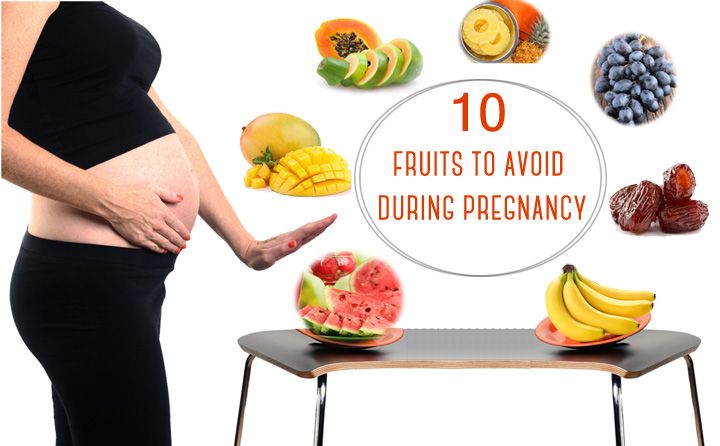 This is because very little enters your bloodstream. Many women have used hair treatments while breastfeeding, with no known negative results.
This is because very little enters your bloodstream. Many women have used hair treatments while breastfeeding, with no known negative results.
Painting
The risk of fumes from modern household paints harming your baby is low, but it’s impossible to know exactly how small the risk is. This is because it’s very difficult to measure the substances and chemicals your body absorbs during activities such as painting.
There has been very little research into the effects of paint fumes on unborn babies. The few studies that have been done show that the risk is extremely low.
Renovating houses can increase your exposure to lead. If your house was built before 1971 (when lead-based paint was still available), get advice before doing anything that disturbs the paint. Disturbing lead-based paint can spread lead dust into the air and around the house. It’s important that pregnant women and children aren’t around during renovations that disturb lead-based paint.
Any small risk to your baby is greatest during your first trimester when your baby’s organs start to develop.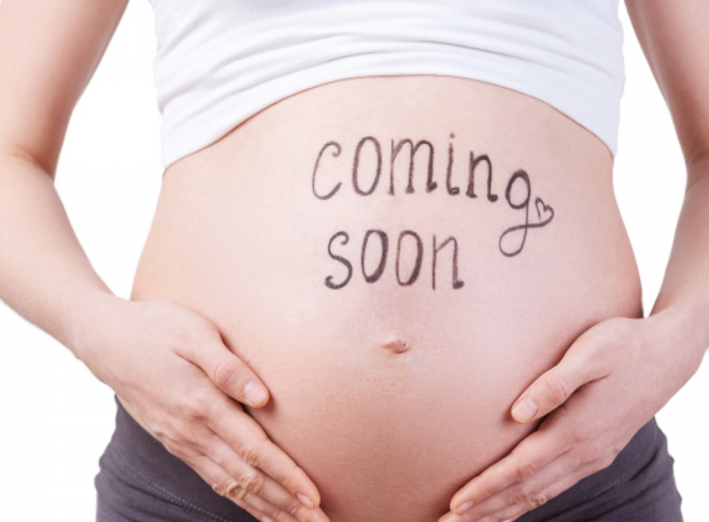 Any harmful fumes or chemicals at this stage could affect your baby more severely. As a precaution it’s best to avoid painting and decorating until at least the 14th week of your pregnancy.
Any harmful fumes or chemicals at this stage could affect your baby more severely. As a precaution it’s best to avoid painting and decorating until at least the 14th week of your pregnancy.
Sauna or jacuzzi
There is little research on using saunas, jacuzzis and similar heated leisure facilities during pregnancy. However, it's advisable to avoid them because of the risks of overheating, dehydration and fainting.
You’re likely to feel warmer during pregnancy. This is due to hormonal changes and an increase in blood supply to the skin. These hormonal changes can also often make pregnant women feel faint.
If you overheat, more blood flows close to your skin, to help cool your body by sweating. This means less blood flows to your internal organs such as your brain. If this happens, your brain may not get enough blood and, therefore, oxygen. This can make you feel faint.
When you use a sauna, jacuzzi, hot tub, steam bath or steam room, your body cannot lose heat effectively by sweating.![]() Your body's core temperature therefore rises. It's possible that a significant rise in your core temperature may affect your unborn baby's development, particularly in the first 12 weeks of the pregnancy.
Your body's core temperature therefore rises. It's possible that a significant rise in your core temperature may affect your unborn baby's development, particularly in the first 12 weeks of the pregnancy.
Take care when you get out of a hot bath or stand up quickly, as these can also make you feel faint.
Sunbeds
Sunbeds (solariums) give out ultraviolet (UV) rays, the same type of harmful radiation found in sunlight. Using a sunbed increases your risk of developing skin cancer including malignant melanoma, the most serious form of skin cancer. It is illegal to operate a commercial solarium in Australia.
There is no clear evidence about the effect of UV rays from sunbeds on an unborn baby. Some studies have suggested there may be a link between increased UV rays and a folic acid deficiency. This is because UV rays can break down folic acid.
Pregnant women often find that their skin is more sensitive than usual. If you use a sunbed when you are pregnant, your skin may therefore be more likely to burn.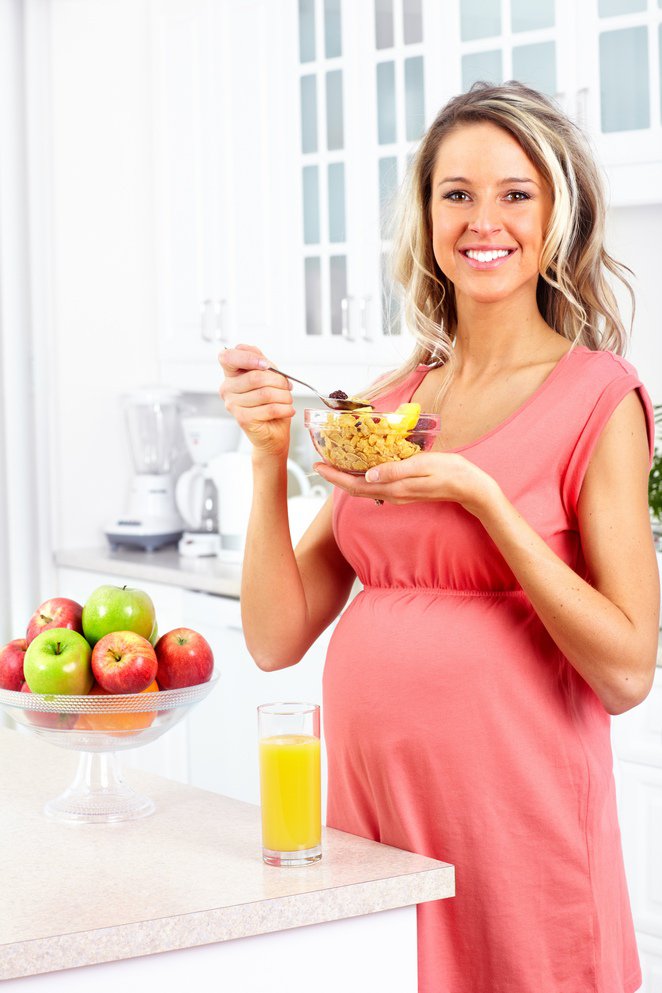
X-rays
If possible, you should avoid having an x-ray while you’re pregnant. Your healthcare professional will assess whether your treatment can wait until you’ve had your baby. They will assess whether the benefits of treatment outweigh the low risk of having an x-ray. They may also consider using another imaging method instead, such as an ultrasound scan.
The risk from x-ray radiation is related to the stage of pregnancy at which the exposure occurs and the dosage amount that reaches the baby. There is slight risk of birth defects and physical and mental development problems.
However, repeated exposure to radiation can damage the body's cells, which can increase the risk of cancer developing. This is why the dose of radiation used in an x-ray is always as low as possible. X-rays during pregnancy carry a very small risk of exposing the unborn baby to radiation, which could cause cancer to develop during his or her childhood.
To find out more, visit Inside Radiology - Radiation risk of medical imaging during pregnancy.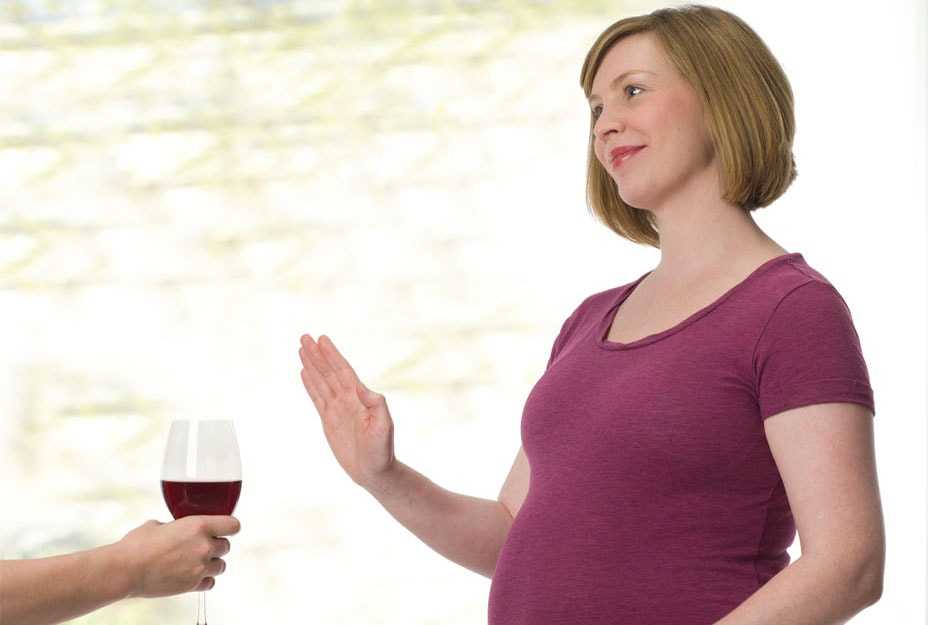
Dental x-rays
Make sure your dentist knows that you're pregnant. If you need a dental x-ray, your dentist will usually wait until you've had the baby, even though most dental x-rays don't affect the abdomen or pelvic area.
Other radiology tests
It is vital you tell your doctor or specialist if you are or may be pregnant because some procedures can affect the fetus. Your doctor or specialist will refer you for an appropriate radiology procedure if it is safe to do so. You must also inform the hospital or radiology practice when you make the appointment and the medical staff performing the procedure if you are or may be pregnant.
Breastfeeding and x-rays
In general, you do not need to interrupt breastfeeding to have radiological tests such as an x-ray, MRI, CT, angiogram, ultrasound or mammogram. These examinations do not affect breastfeeding.
But it is important that you tell your doctor or specialist if you are breastfeeding. Some procedures can involve a radioactive substance being injected into your vein that will take a few days to flush out of your body through your urine.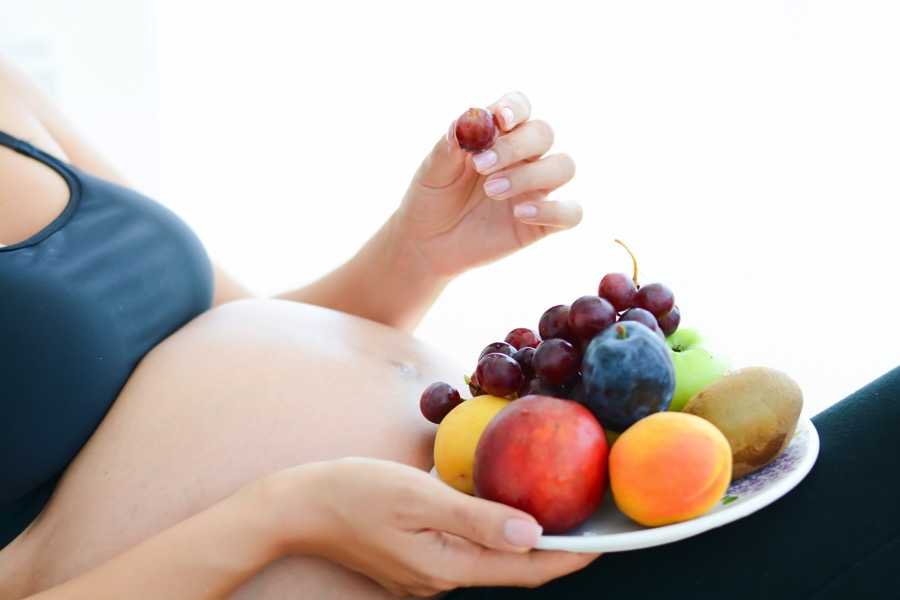 While it is in your body, a very small amount of radioactive substance can be passed on to your child through the breast milk. Your doctor or specialist and their staff will give you instructions, such as to express and throw away breast milk for a short time after having the scan, so that your child is not exposed to the radioactive substance unnecessarily.
While it is in your body, a very small amount of radioactive substance can be passed on to your child through the breast milk. Your doctor or specialist and their staff will give you instructions, such as to express and throw away breast milk for a short time after having the scan, so that your child is not exposed to the radioactive substance unnecessarily.
Call Pregnancy, Birth and Baby on 1800 882 436 to speak to a maternal child health nurse.
Learn more here about the development and quality assurance of healthdirect content.
11 Foods and Beverages to Avoid During Pregnancy
The foods you should avoid while pregnant typically include undercooked or raw meat or fish and other foods that can carry a risk of infection. You may also need to minimize caffeine and certain beverages.
One of the first things people learn when they’re pregnant is what they can’t eat. It can be a real bummer if you’re a big sushi, coffee, or rare steak fan.
Thankfully, there’s more you can eat than what you can’t.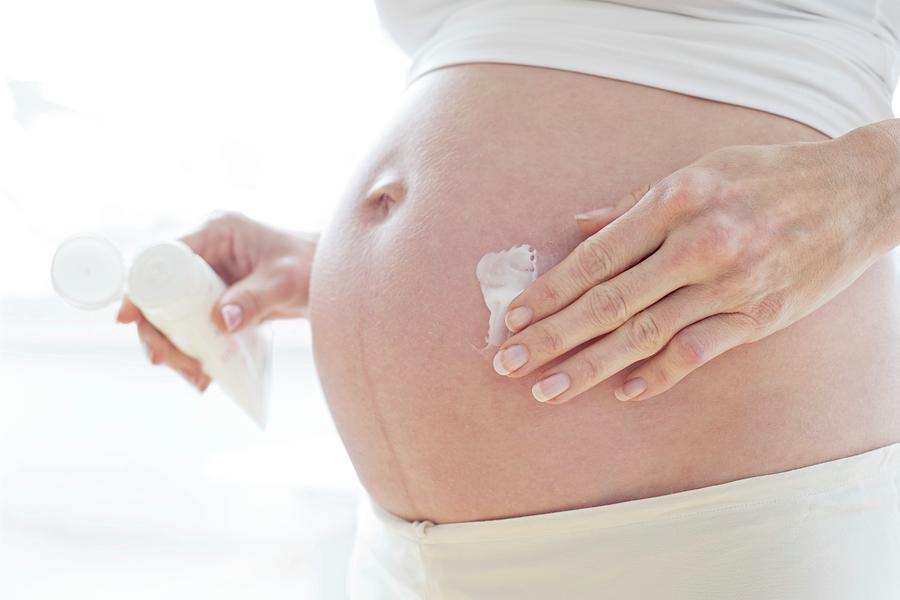 You just have to learn how to navigate the waters (the low mercury waters, that is). You’ll want to pay close attention to what you eat and drink to stay healthy.
You just have to learn how to navigate the waters (the low mercury waters, that is). You’ll want to pay close attention to what you eat and drink to stay healthy.
Certain foods should only be consumed rarely, while others should be avoided completely. Here are 11 foods and beverages to avoid or minimize while pregnant.
Mercury is a highly toxic element. It has no known safe level of exposure and is most commonly found in polluted water.
In higher amounts, it can be toxic to your nervous system, immune system, and kidneys. It may also cause serious developmental problems in children, with adverse effects even in lower amounts.
Since it’s found in polluted seas, large marine fish can accumulate high amounts of mercury. Therefore, it’s best to avoid high mercury fish while pregnant and breastfeeding.
High-mercury fish you want to avoid include:
- shark
- swordfish
- king mackerel
- tuna (especially bigeye tuna)
- marlin
- tilefish from the Gulf of Mexico
- orange roughy
However, it’s important to note that not all fish are high in mercury — just certain types.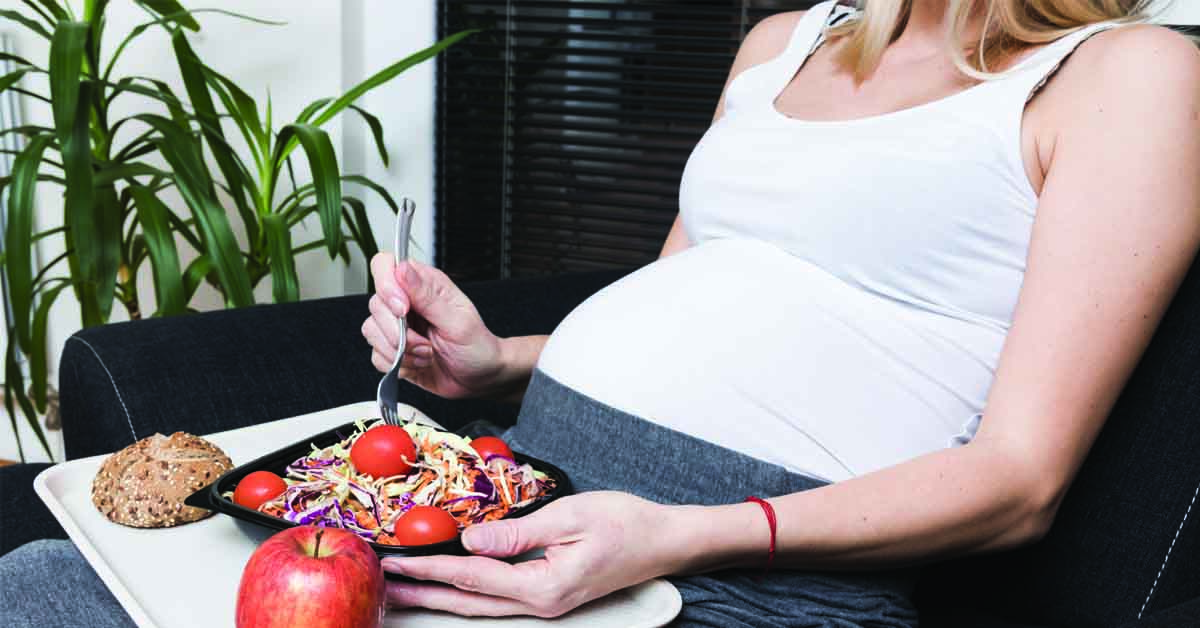
Consuming low mercury fish during pregnancy is very healthy, and these fish can be eaten up to three times per week, according to the Food and Drug Administration (FDA).
Low mercury fish are plentiful and include:
- anchovies
- cod
- flounder
- haddock
- salmon
- tilapia
- trout (freshwater)
Fatty fish like salmon and anchovies are especially good options, as they are high in omega-3 fatty acids, which are important for your baby.
This one will be tough for you sushi fans, but it’s an important one. Raw fish, especially shellfish, can cause several infections. These can be viral, bacterial, or parasitic infections, such as norovirus, Vibrio, Salmonella, and Listeria.
Some of these infections may only affect you, causing dehydration and weakness. Other infections may be passed on to your baby with serious, or even fatal, consequences.
Pregnant women are especially susceptible to listeria infections. In fact, according to the Centers for Disease Control and Prevention (CDC), pregnant women are up to 10 times more likely to get infected by Listeria than the general population. Pregnant Hispanic women are 24 times more at risk.
In fact, according to the Centers for Disease Control and Prevention (CDC), pregnant women are up to 10 times more likely to get infected by Listeria than the general population. Pregnant Hispanic women are 24 times more at risk.
This bacteria can be found in soil and contaminated water or plants. Raw fish can become infected during processing, including smoking or drying.
Listeria bacteria can be passed to your baby through the placenta, even if you’re not showing any signs of illness. This can lead to premature delivery, miscarriage, stillbirth, and other serious health problems, according to the CDC.
It’s definitely advised to avoid raw fish and shellfish, including many sushi dishes. But don’t worry, you’ll enjoy it that much more after baby is born and it’s safer to eat again.
Some of the same issues with raw fish affect undercooked meat, too. Eating undercooked or raw meat increases your risk of infection from several bacteria or parasites, including Toxoplasma, E.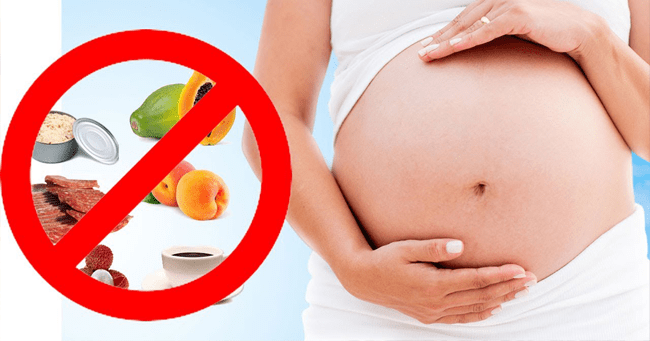 coli, Listeria, and Salmonella.
coli, Listeria, and Salmonella.
Bacteria may threaten the health of your little one, possibly leading to stillbirth or severe neurological illnesses, including intellectual disability, blindness, and epilepsy.
While most bacteria are found on the surface of whole pieces of meat, other bacteria may linger inside the muscle fibers.
Some whole cuts of meat — such as tenderloins, sirloins, or ribeye from beef, lamb and veal — may be safe to consume when not cooked all the way through. However, this only applies when the piece of meat is whole or uncut, and completely cooked on the outside.
Cut meat, including meat patties, burgers, minced meat, pork, and poultry, should never be consumed raw or undercooked. So keep those burgers on the grill well done for now.
Hot dogs, lunch meat, and deli meat are also of concern, which is sometimes surprising to pregnant people. These types of meat may become infected with various bacteria during processing or storage.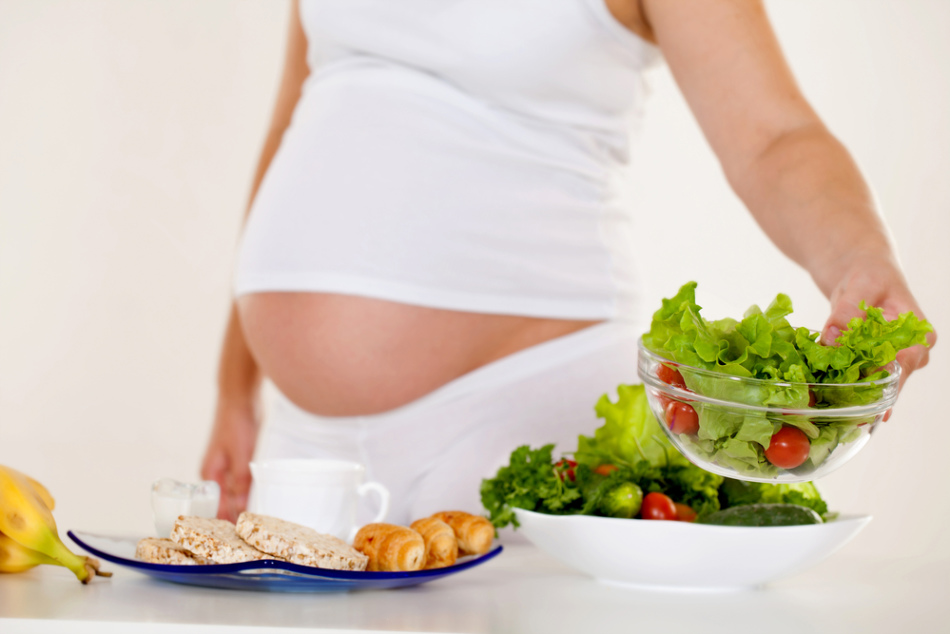
Pregnant women should not consume processed meat products unless they’ve been reheated until steaming hot.
Raw eggs can be contaminated with the Salmonella bacteria.
Symptoms of salmonella infections include fever, nausea, vomiting, stomach cramps, and diarrhea.
However, in rare cases, the infection may cause cramps in the uterus, leading to premature birth or stillbirth.
Foods that commonly contain raw eggs include:
- lightly scrambled eggs
- poached eggs
- hollandaise sauce
- homemade mayonnaise
- some homemade salad dressings
- homemade ice cream
- homemade cake icings
Most commercial products that contain raw eggs are made with pasteurized eggs and are safe to consume. However, you should always read the label to make sure.
To be on the safe side, make sure to always cook eggs thoroughly or use pasteurized eggs. Save those super runny yolks and homemade mayo until after baby makes their debut.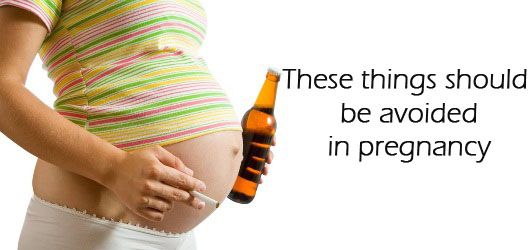
Organ meat is a great source of a variety of nutrients.
These include iron, vitamin B12, vitamin A, zinc, selenium, and copper — all of which are good for you and baby. However, eating too much animal-based vitamin A (preformed vitamin A) is not recommended during pregnancy.
Consuming too much preformed vitamin A, especially in the first trimester of pregnancy, can lead to congenital malformations and miscarriage.
Although this is mostly associated with vitamin A supplements, it’s best to keep your consumption of organ meats like liver to just a few ounces once per week.
You may be one of the millions of folks who love their daily cups of coffee, tea, soft drinks, or cocoa. You’re definitely not alone when it comes to our love of caffeine.
Pregnant people are generally advised to limit their caffeine intake to less than 200 milligrams (mg) per day, according to the American College of Obstetricians and Gynecologists (ACOG).
Caffeine is absorbed very quickly and passes easily into the placenta.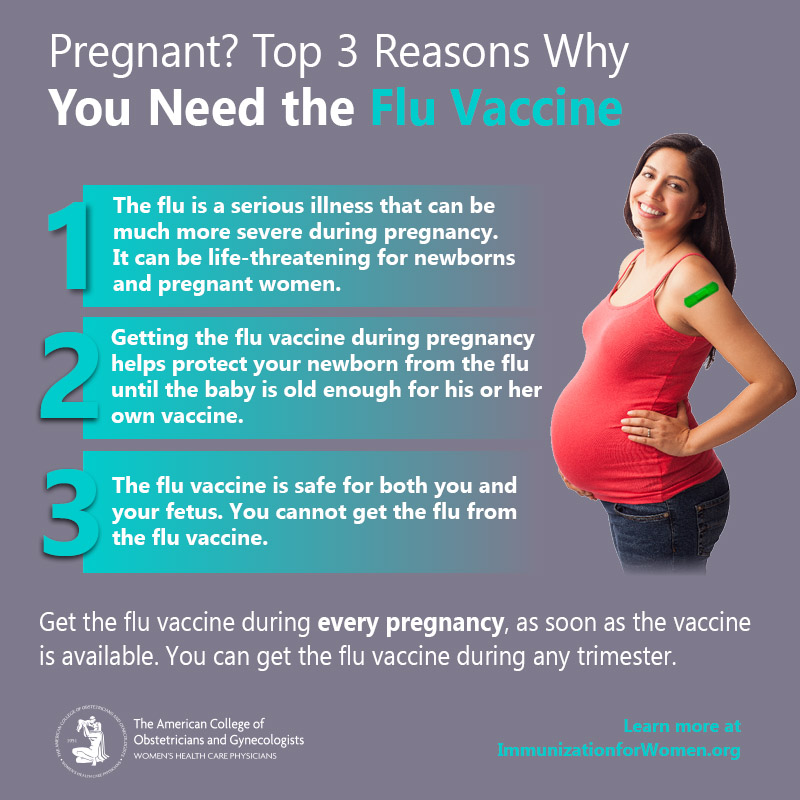 Because babies and their placentas don’t have the main enzyme needed to metabolize caffeine, high levels can build up.
Because babies and their placentas don’t have the main enzyme needed to metabolize caffeine, high levels can build up.
High caffeine intake during pregnancy has been shown to restrict fetal growth and increase the risk of low birth weight at delivery.
Low birth weight — defined as less than 5 lbs., 8 oz. (or 2.5 kg) — is associated with an increased risk of infant death and a higher risk of chronic diseases in adulthood.
So keep an eye on your daily cup of joe or soda to make sure baby doesn’t have exposure to too much caffeine.
Your healthy salad choice may not be free from rogue ingredients, either. Raw sprouts, including alfalfa, clover, radish, and mung bean sprouts, may be contaminated with Salmonella.
The humid environment required by seeds to start sprouting is ideal for these kinds of bacteria, and they’re almost impossible to wash off.
For this reason, you’re advised to avoid raw sprouts altogether. However, sprouts are safe to consume after they have been cooked, according to the FDA.![]()
The surface of unwashed or unpeeled fruits and vegetables may be contaminated with several bacteria and parasites.
These include Toxoplasma, E. coli, Salmonella, and Listeria, which can be acquired from the soil or through handling.
Contamination can occur at any time during production, harvest, processing, storage, transportation, or retail. One dangerous parasite that may linger on fruits and vegetables is called Toxoplasma.
The majority of people who get toxoplasmosis have no symptoms, while others may feel like they have the flu for a month or more.
Most infants who are infected with the Toxoplasma bacteria while still in the womb have no symptoms at birth. However, symptoms such as blindness or intellectual disabilities may develop later in life.
What’s more, a small percentage of infected newborns have serious eye or brain damage at birth.
While you’re pregnant, it’s very important to minimize the risk of infection by thoroughly washing with water, peeling, or cooking fruits and vegetables.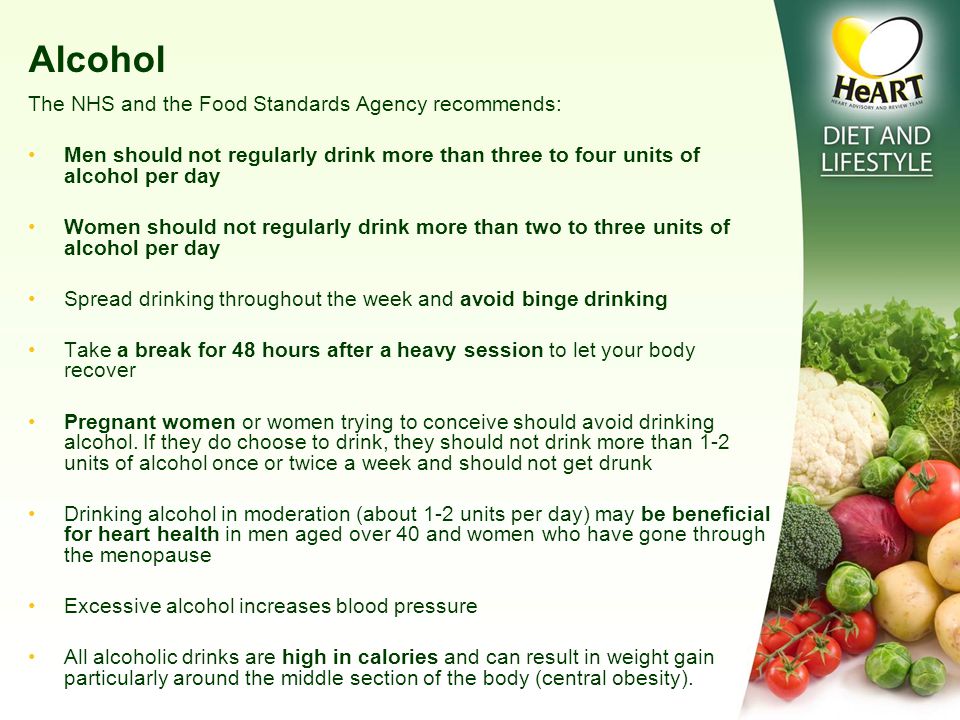 Keep it up as a good habit after baby arrives, too.
Keep it up as a good habit after baby arrives, too.
Raw milk, unpasteurized cheese, and soft-ripened cheeses can contain an array of harmful bacteria, including Listeria, Salmonella, E. coli, and Campylobacter. (These are probably sounding familiar by now.)
The same goes for unpasteurized juice, which is also prone to bacterial contamination. These infections can all have life-threatening consequences for an unborn baby.
The bacteria can be naturally occurring or caused by contamination during collection or storage. Pasteurization is the most effective way to kill any harmful bacteria, without changing the nutritional value of the products.
To minimize the risk of infections, eat only pasteurized milk, cheese, and fruit juice.
It’s advised to completely avoid drinking alcohol when pregnant, as it increases the risk of miscarriage and stillbirth. Even a small amount can negatively impact your baby’s brain development.
Drinking alcohol during pregnancy can also cause fetal alcohol syndrome, which involves facial deformities, heart defects and intellectual disability.
Since no level of alcohol has been proven to be safe during pregnancy, it’s recommended to avoid it altogether.
There’s no better time than pregnancy to start eating nutrient-dense foods to help both you and your growing little one. You’ll need increased amounts of many essential nutrients, including protein, folate, choline, and iron.
It’s also a myth that you’re “eating for two.” You can eat as you normally do during the first semester, then increase by about 350 calories per day in your second trimester, and about 450 calories per day in your third trimester.
An optimal pregnancy eating plan should mainly consist of whole foods, with plenty of nutrients to fulfill yours and baby’s needs. Processed junk food is generally low in nutrients and high in calories, sugar, and added fats.
While some weight gain is necessary during pregnancy, excess weight gain has been linked to many complications and diseases. These include an increased risk of gestational diabetes, as well as pregnancy or birth complications.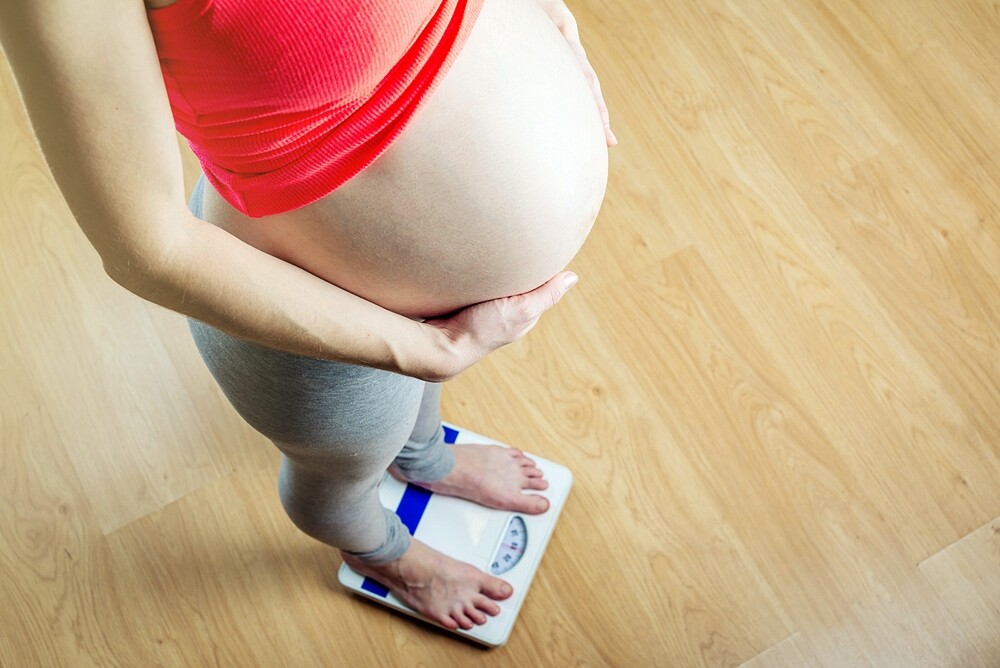
Stick to meals and snacks that focus on protein, vegetables and fruits, healthy fats, and fiber-rich carbohydrates like whole grains, beans, and starchy vegetables. Don’t worry, there are lots of ways to sneak veggies into your meals without sacrificing taste.
When you’re pregnant, it’s essential to avoid foods and beverages that may put you and your baby at risk.
Although most foods and beverages are perfectly safe to enjoy, some, like raw fish, unpasteurized dairy, alcohol, and high mercury fish, should be avoided.
Plus, some foods and beverages like coffee and foods high in added sugar, should be limited in order to promote a healthy pregnancy.
If you want to learn more about what foods you should eat during pregnancy, check out this article: Healthy Eating During Pregnancy.
Quick tips for foods to avoid when pregnant
- Avoid high-mercury fish including shark, swordfish, tuna, and marlin.
- Raw fish and shellfish can be contaminated with bacteria and parasites.
Some of these can cause adverse health effects and harm both you and baby.
- Raw or undercooked meat may contain harmful bacteria. As a general rule, meat should be cooked all the way through.
- Raw eggs may be contaminated with Salmonella, and may put you and your baby at risk. Be sure to thoroughly cook eggs before eating.
- Organ meat is a great source of iron, vitamin B12, vitamin A, and copper. To prevent consuming too much vitamin A limit your intake of organ meat to a few ounces once a week.
- Limit caffeine intake to under 200 mg per day, which is about 2 to 3 cups of coffee. High caffeine intake during pregnancy may limit baby’s growth and cause low birth weight.
- Raw sprouts may be contaminated with bacteria. Only eat them thoroughly cooked.
- Fruits and vegetables may be contaminated with harmful bacteria, including Toxoplasma. It’s important to thoroughly wash all fruits and vegetables with plenty of clean water.
- Don’t consume unpasteurized milk, cheese, or fruit juice, as these foods increase the risk of bacterial infections.

- Avoid all alcohol. Drinking alcohol can increase the risk of miscarriage, stillbirth, and fetal alcohol syndrome.
- Eating processed foods during pregnancy can increase your risk of excess weight gain, gestational diabetes, and complications. This can have long-term health implications for you and your child.
What Not to Eat During Pregnancy
Your body works like a finely tuned machine to support a growing fetus, but a healthy and balanced diet (and avoiding certain foods) can help Mother Nature do her job even better. So, how is the nutrition of pregnant women different from the usual proper nutrition? What exactly should you be eating? Many pregnant women also wonder what foods to avoid and what not to eat during pregnancy. Here you will find answers to your questions, as well as practical advice on nutrition during pregnancy.
We are always ready to help you with advice, but remember that each woman's pregnancy is different, so our advice cannot replace the advice of a doctor.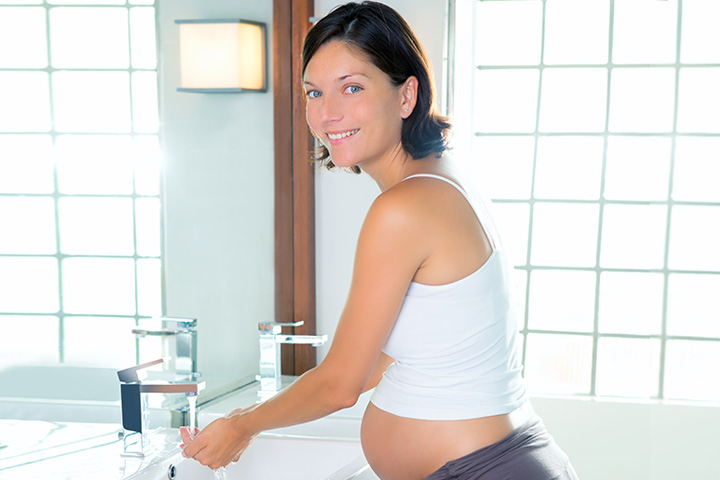 Contact your doctor to discuss any individual changes to your diet.
Contact your doctor to discuss any individual changes to your diet.
What not to eat during pregnancy
The good news is that healthy eating during pregnancy is very similar to healthy eating for non-pregnant women. You should eat regularly and try to eat mostly natural foods such as vegetables, fruits and whole grains. Also, try to limit high-sugar and processed foods in your diet.
For safety reasons, avoid raw or undercooked meat, liver, raw fish sushi, raw eggs, soft cheeses, and unpasteurized milk and juices. Below you will find more information on some of the foods that should not be consumed during pregnancy: 1 2 3
mercury content, which include marlin, swordfish, king mackerel, mackerel, shark, tuna and tilefish. Only canned light tuna is allowed in moderation.
To the dismay of all sushi lovers, raw fish, shellfish and crustaceans are also among the foods that are highly discouraged during pregnancy, as they may contain bacteria or even parasites. Smoked seafood should also be excluded from the diet.
Smoked seafood should also be excluded from the diet.
- Soft cheeses made from unpasteurized milk
Soft cheeses such as feta, brie, dorblu and camembert are also on the list of foods that pregnant women should avoid. Because these cheeses are made from raw milk, they can be contaminated with Listeria. 4
Rule of thumb: look for the label that says the product is pasteurized!
- Unpasteurized milk and juices
Similar rules apply to milk and juices. Freshly squeezed juice or any unpasteurized juice may contain disease-causing bacteria (E. coli, Listeria, Salmonella) 5 , so these products should not be consumed during pregnancy.
- Raw eggs
Also on your pregnancy avoid list are raw eggs or foods that contain raw or half-baked eggs: muffin mix, cookie dough, soft-boiled eggs, and fried eggs.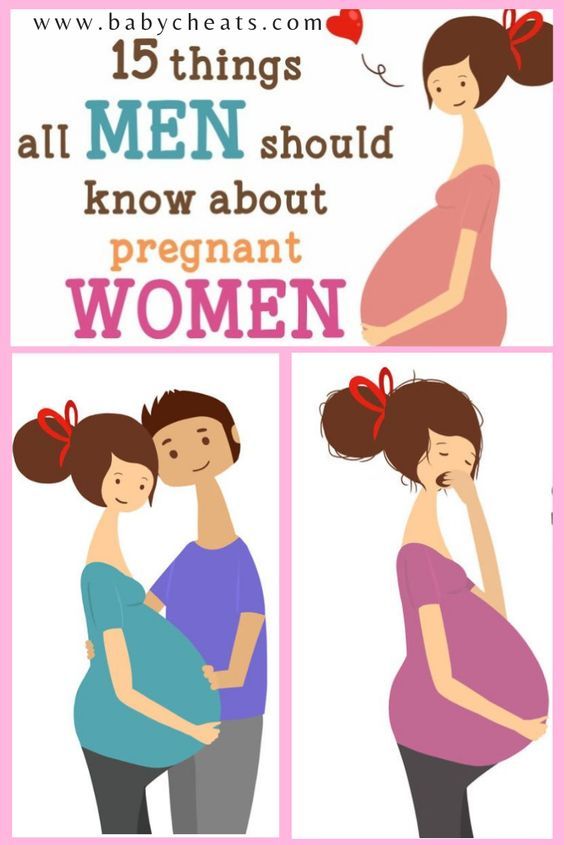 Also be aware of foods that may contain half-baked eggs, such as salads, condiments, scrambled eggs, and ice cream. During pregnancy, it is necessary to consume only those eggs that have been heat-treated until fully cooked.
Also be aware of foods that may contain half-baked eggs, such as salads, condiments, scrambled eggs, and ice cream. During pregnancy, it is necessary to consume only those eggs that have been heat-treated until fully cooked.
- Semi-cooked or raw meat and poultry
Semi-cooked or raw meat may contain listeria. During pregnancy, be careful to avoid such deli meats, or steam the meat until it is fully cooked. Cold meat pâtés are also prohibited. As for sliced meat, make sure that it has been heat-treated until it is fully cooked before eating it.
- Raw or semi-cooked foods of plant origin
Eating raw vegetables, fruits, berries, lettuce, legumes, root vegetables, etc. carries the risk of food poisoning and should be thoroughly washed or cooked before consumption to reduce the risk of bacterial growth . Foods to Avoid During Pregnancy0005- Pre-cooked fresh minced meat
Be careful when eating pre-cooked fresh minced meat.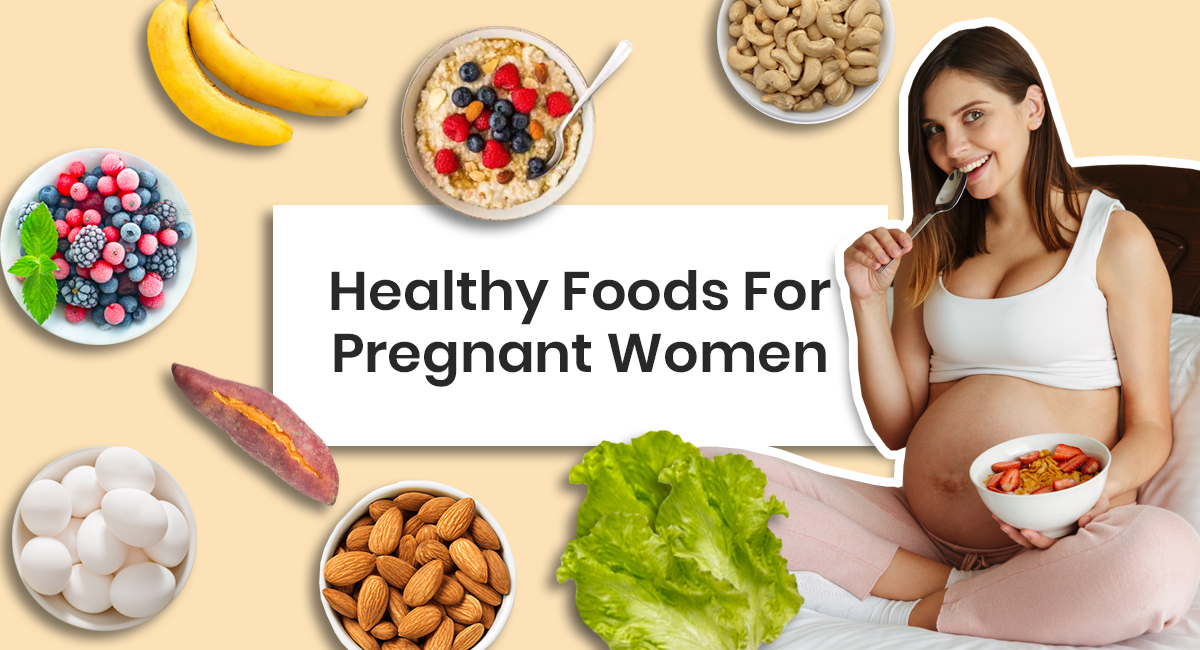 If you decide to buy a whole stuffed bird, you need to buy it frozen and do not defrost before cooking. Bacteria can grow in fresh meat in combination with stuffing. 7
If you decide to buy a whole stuffed bird, you need to buy it frozen and do not defrost before cooking. Bacteria can grow in fresh meat in combination with stuffing. 7
- Sweets, carbohydrate-rich foods, fast food
Although there is no conclusive scientific evidence, sweets, fast food, and foods high in fat and carbohydrates are usually on the list of foods that expectant mothers crave to eat. If you have an overwhelming craving for certain foods during pregnancy, try choosing healthier options. Can't imagine a meal without french fries? Fry foods in little or no oil with the Airfryer Airfryer, a healthy alternative that lets you enjoy delicious fried food at 9% less0%*fat content. You must remember that a balanced, healthy diet is important for maintaining your health and the health of your unborn baby.
- Excess caffeine
During pregnancy, restrictions are placed not only on food, but also on drinks, among which drinks containing caffeine should be avoided.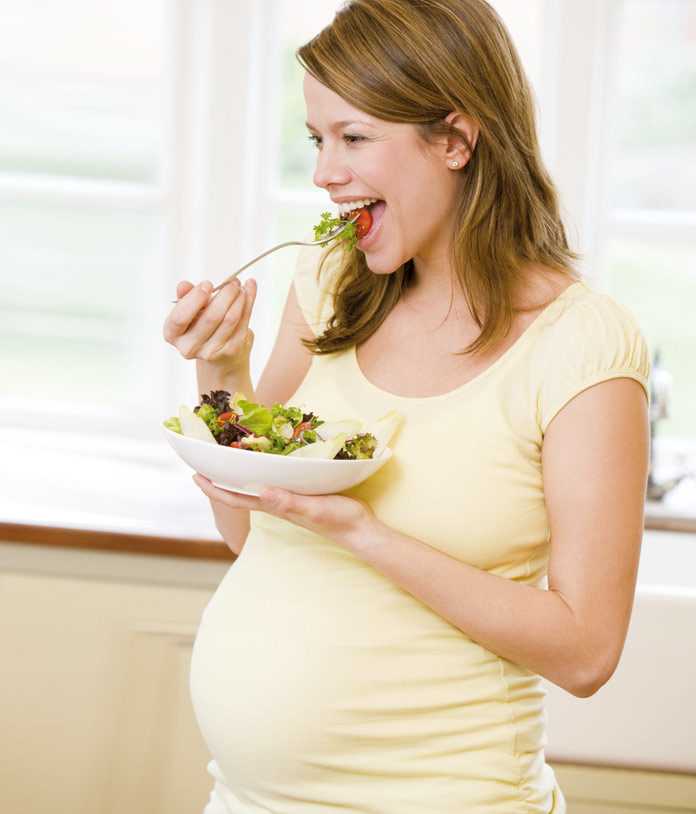 Remember that caffeine is found not only in coffee, but also in drinks such as tea, cocoa, cola.
Remember that caffeine is found not only in coffee, but also in drinks such as tea, cocoa, cola. The World Health Organization (WHO) recommends that “women with daily high caffeine intake (more than 300 mg per day) reduce their daily intake during pregnancy to reduce the risk of miscarriage or low birth weight.” 8
After the birth of a child, the diet of a nursing mother is no less important than during pregnancy. Watch a webinar from a Philips Avent expert on nutrition during this period:
Healthy nutrition for expectant mothers
Pregnancy is a period of intensive growth and development of your unborn child, as well as a time of many physiological changes in the mother's body, so the nutrition of a pregnant woman should contribute in every possible way to the success of passing this path. It's a good idea to discuss this with your doctor so you can make sure you're getting enough of the right nutrients.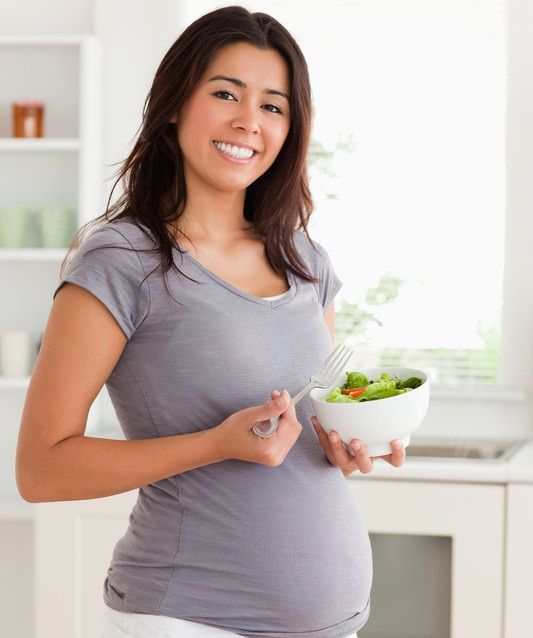 Here are some key tips for a healthy, balanced diet during pregnancy:
Here are some key tips for a healthy, balanced diet during pregnancy: - Eat whole grains such as whole grain bread and pasta; Choose lean meat or poultry and aim for 225-350 grams of boiled fish per week (remember to choose low-mercury fish).
- Your diet should include five food groups: grains, fruits, vegetables, protein, and dairy. 9 Have half your plate of vegetables and fruits and the other half whole grains.
- And the easiest way to eat more fruits and vegetables is to make smoothies. Now there is a huge variety of recipes, and Philips blenders will help you cook them quickly and achieve the most delicate texture. Make new recipes from your favorite foods and add greens and nuts to them.
- Talk to your doctor about your diet, vitamin supplements, and other prenatal medications, such as folic acid and iron supplements. During pregnancy, there is an increased need for vitamins and minerals, the full amount of which food products alone cannot provide.

- Choose monounsaturated or polyunsaturated fats, such as olive oil and avocados, and limit saturated fats and empty-calorie foods, such as candy or sugary drinks.
Stay on top of your pregnancy health with the Pregnancy+ mobile app. This application is specially designed for the entire pregnancy and childbirth period and provides comprehensive guidance through all stages of pregnancy. Always check with your doctor before embarking on any particular diet.
Articles & Tips from Philips Avent
Contraindications for Early Pregnancy and 2nd and 3rd Trimester Pregnancy
Foreword
Pregnancy is a wonderful time, but also a challenging one. The course of pregnancy and the health of the unborn child depend on the behavior of the expectant mother.
Lifestyle changes during pregnancy, of course. Today we will talk about contraindications during pregnancy, about those prohibitions that her condition imposes on a woman.
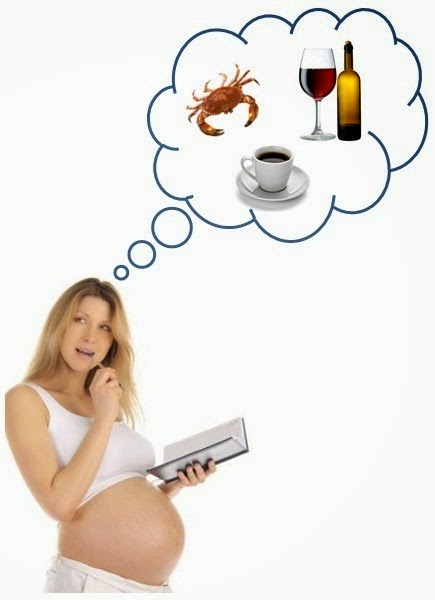
It is known that the entire period of pregnancy is divided into three trimesters. And in each of them there are different contraindications during pregnancy.
Contraindications in the first trimester of pregnancy
The first trimester of pregnancy is the most important period of the entire pregnancy, because at this time all the main systems of the new organism are formed. Therefore, in the first trimester of pregnancy, the list of restrictions is the most voluminous.
In order for a child to be healthy and develop properly, he must be provided with high-quality building materials and nullify all adverse factors that may affect the development of the body.
What should not be done in the first trimester of pregnancy?
- First of all, it is necessary to give up such a bad habit as smoking. If you smoked before pregnancy, then it is necessary to leave cigarettes immediately! Smoking has an extremely negative effect on intrauterine development and leads to the formation of pathologies of varying severity.
 Passive smoking should also be avoided. It is unacceptable to be in the same room with a smoker. Very often, a woman's body takes care of itself - when pregnancy occurs, she begins to experience a strong aversion to the smell of cigarette smoke.
Passive smoking should also be avoided. It is unacceptable to be in the same room with a smoker. Very often, a woman's body takes care of itself - when pregnancy occurs, she begins to experience a strong aversion to the smell of cigarette smoke. - Alcohol is the second enemy of the normal course of pregnancy. The influence of alcohol is especially harmful in the early stages, when the main systems of the body are being formed.
- Crowded places should be avoided as there is a risk of infection in crowded places. Infectious diseases have an extremely negative effect on pregnancy, especially since the list of medicines that can be used during this period is extremely small.
- The same applies to colds, which, among other things, can lead to serious complications due to the weakness of the body. Therefore, it is advisable not to overcool, not to be in a draft, not to wet your feet.
- Fluorography and other x-rays should not be done except for vital indications.
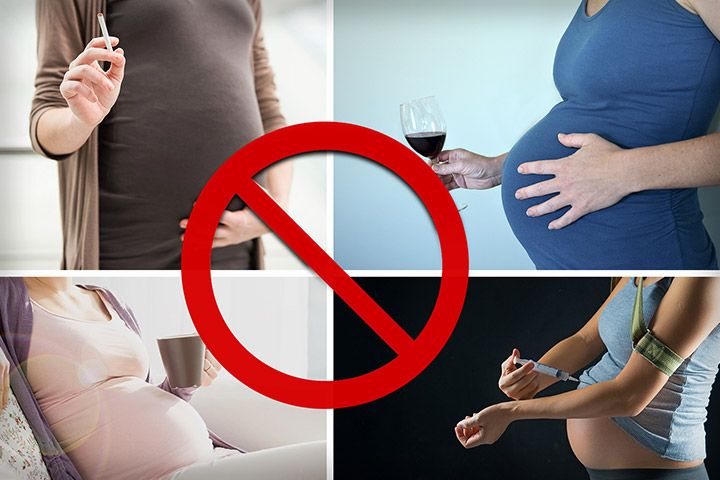 X-ray radiation has an extremely negative effect on the development of the child and can lead to developmental pathology.
X-ray radiation has an extremely negative effect on the development of the child and can lead to developmental pathology. - Before taking medicines during pregnancy, you should read the package leaflet very carefully and consult your doctor. Many medicines are contraindicated during pregnancy, and it is strictly forbidden to take them. These drugs include many antibiotics, tranquilizers, painkillers, narcotic drugs, and some others.
- Stress is also a contraindication during pregnancy. Excessive nervous tension and negative emotions have an extremely negative effect on the development of the child. With stressful loads, hormonal collection often occurs, which negatively affects the development of pregnancy.
- A very important contraindication during pregnancy is weight lifting. You can not heavily load the muscles of the abdomen and pelvis. Exhausting physical exercises should be abandoned. And, of course, to exclude various extreme sports, giving preference to more relaxed activities: swimming, walking, simple yoga exercises, physical therapy and breathing exercises.

- Nutrition during pregnancy should be taken very seriously. Dyes, chemical flavoring additives in food are contraindicated.
- As for products of animal origin, they require complete heat treatment before consumption. It is forbidden to eat half-cooked food, as dangerous parasites and bacteria that cause serious illness can be present in uncooked foods.
- If you have pets at home, especially cats, entrust the care of the cat to someone from the household. Cat feces can contain pathogens of toxoplasmosis, a dangerous disease that negatively affects the development of the child.
Pregnancy contraindications - controversial issues
Some of the restrictions during the first trimester of pregnancy are controversial today. Let's focus on the most important points.
- Sex life
During sexual intercourse, there is an active contraction of the muscles of the uterus and small pelvis, so it is advisable to abstain from sex in the first trimester of pregnancy.
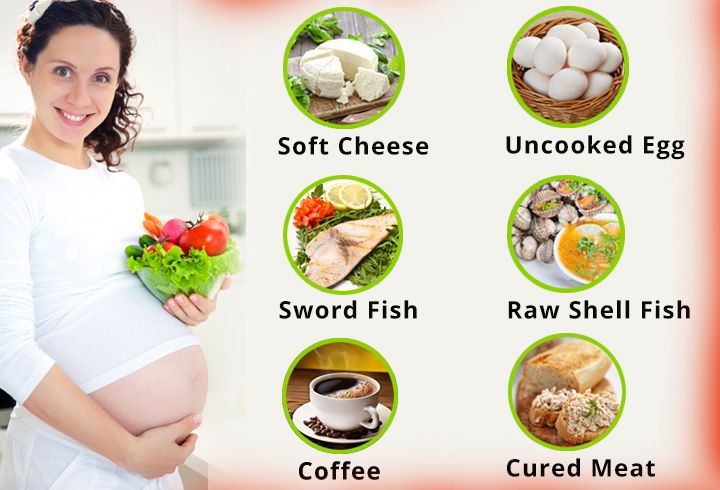 This is especially true with the threat of miscarriage. However, even if your pregnancy is going well, sexual contact can cause complications because the fetus may be displaced or disturbed.
This is especially true with the threat of miscarriage. However, even if your pregnancy is going well, sexual contact can cause complications because the fetus may be displaced or disturbed. Over time, the embryo becomes more protected, so after the first trimester of pregnancy, if you feel good, there are no restrictions on your sex life.
- Cosmetics
During the first trimester of pregnancy, you must continue to take care of your body. However, it is recommended not to use cosmetics with fragrances and strong odors. Currently, many hypoallergenic personal care products are being produced, you can also use children's cosmetics.
It is good to use natural natural remedies: masks made from vegetables and fruits, such as cucumber mask or strawberry mask, as well as honey and olive oil. In specialized stores there is a large selection of cosmetics for expectant mothers.
Hair coloring is not a contraindication during pregnancy. However, it is not recommended to dye your hair with any paint.
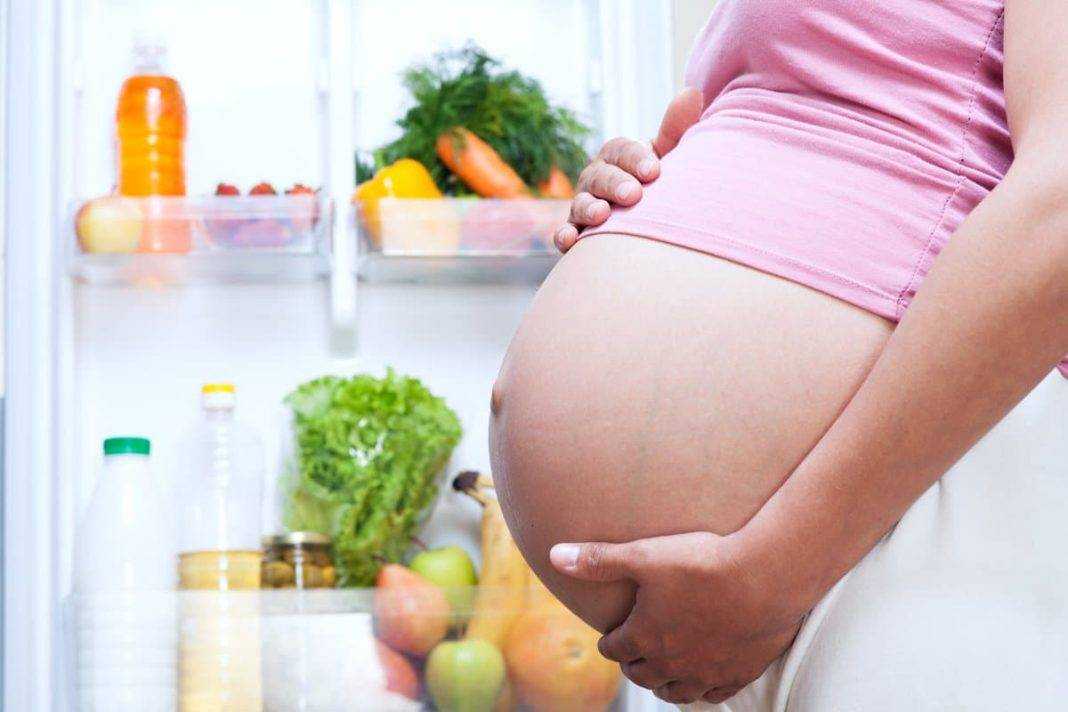 The chemical elements that make up the paint negatively affect the condition of the hair. Therefore, if you decide to dye your hair, especially in the first trimester of pregnancy, give preference to expensive proven dyes. And it is best to use natural substances: henna or basma.
The chemical elements that make up the paint negatively affect the condition of the hair. Therefore, if you decide to dye your hair, especially in the first trimester of pregnancy, give preference to expensive proven dyes. And it is best to use natural substances: henna or basma. - Physical activity
Heavy physical activity is contraindicated during the first trimester of pregnancy. Serious stress on the body should be avoided, so if you were involved in extreme or power sports before pregnancy, change activities. It is possible and necessary to engage in physical education during the first trimester, but change your occupation, give preference to swimming, yoga, physiotherapy exercises, and walks in the fresh air.
There are special complexes of therapeutic and breathing exercises for pregnant women.
- Tanning and solarium visit
Ultraviolet is necessary for normal health and functioning of all body systems. Therefore, sunbathing is not forbidden.
 Of course, it is best to do it on the beach. It is only necessary to remember that it is necessary to be in the sun in the morning and evening hours, before 11 am and after 4 pm, since in the daytime the sun is very active and can harm the body.
Of course, it is best to do it on the beach. It is only necessary to remember that it is necessary to be in the sun in the morning and evening hours, before 11 am and after 4 pm, since in the daytime the sun is very active and can harm the body. Also remember to protect yourself from sunburn and use sunscreen. Sunbathing should not be prolonged, and at the slightest sign of indisposition, they should be stopped. It is best that exposure to sunlight on the body occurs in partial shade.
Is a solarium contraindicated in the first trimester of pregnancy? Here the opinions of experts differ. However, if there are no complications of pregnancy and strict contraindications, then you can visit the solarium, observing the precautionary measures: the stomach must be covered with a cloth, and you should also carefully monitor your well-being, and at the slightest sign of malaise, stop the procedure.
- Travel
Traveling long distances is recommended to be postponed.
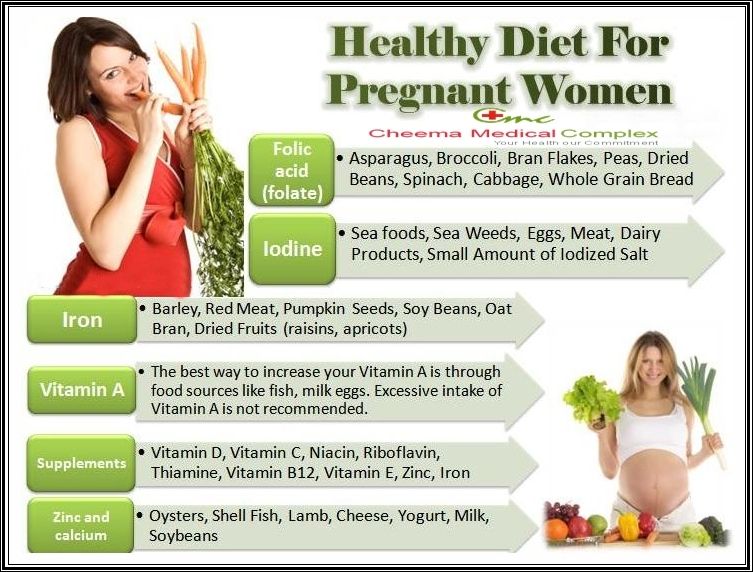 The fact is that vibrations in the train and on the plane lead to tension in the muscles of the back and abdomen, and can provoke an increased tone of the uterus. In addition, when traveling by plane, the body experiences stress caused by pressure differences.
The fact is that vibrations in the train and on the plane lead to tension in the muscles of the back and abdomen, and can provoke an increased tone of the uterus. In addition, when traveling by plane, the body experiences stress caused by pressure differences. However, if the pregnancy is normal, the woman is in good physical shape, flying and train travel are not contraindicated. You just need to follow some precautions: drink plenty of water during the flight, wear loose clothing, and walk around the cabin several times during the flight. As for the train, here one should not save on amenities, it is not advisable to travel in a reserved seat, and even more so in a common carriage, a place, of course, should be chosen on the lower shelf.
Trips bring a lot of positive emotions, so if there are no serious contraindications, consult a doctor and feel free to hit the road!
- Power supply
Fast food and foods that cause allergic reactions should be excluded from your diet.
 But if you really want to eat a hamburger, then you can sometimes afford it. Just don't get carried away!
But if you really want to eat a hamburger, then you can sometimes afford it. Just don't get carried away! In the first trimester of pregnancy, many women experience morning sickness. Therefore, fatty and heavy foods become a contraindication in the first trimester of pregnancy.
- Coffee and cocoa
Coffee excites the nervous system and affects the heart. Therefore, coffee is a contraindication during pregnancy if you have problems with the heart or blood vessels. At the same time, in moderation, coffee is useful for maintaining tone and uplifting mood. Also, coffee is recommended at reduced pressure. But everything should be done in moderation.
Cocoa is a very useful product, it contains many vitamins and microelements. At the same time, cocoa also has negative properties: cocoa washes calcium out of the body and prevents its absorption. Cocoa also provokes the appearance of uterine tone, which is very dangerous especially in the first trimester of pregnancy.
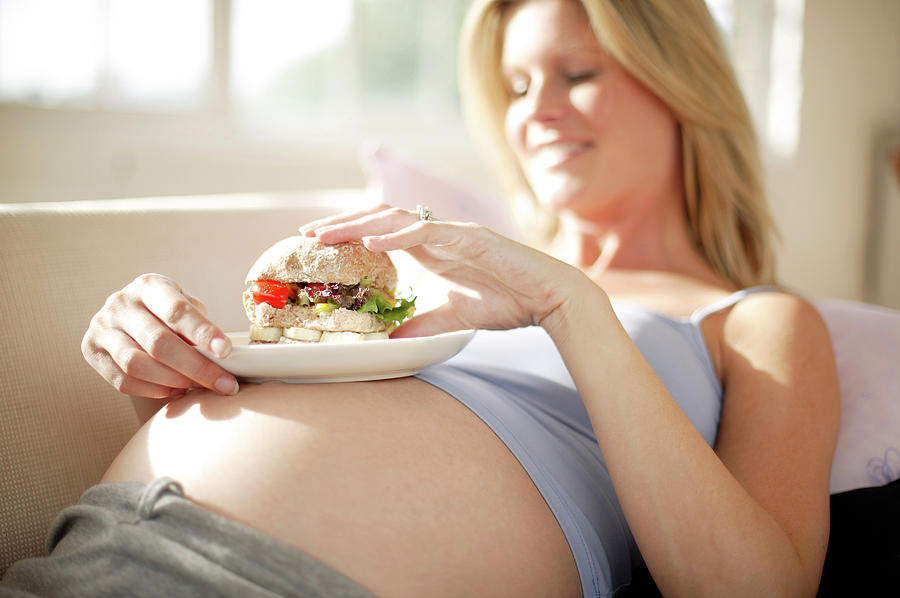 Cocoa is high in calories, so it contributes to weight gain, which is highly undesirable. Based on the foregoing, the use of cocoa is rather a contraindication during pregnancy
Cocoa is high in calories, so it contributes to weight gain, which is highly undesirable. Based on the foregoing, the use of cocoa is rather a contraindication during pregnancy Contraindications in the second trimester of pregnancy
The second trimester of pregnancy is the most pleasant time! Toxicosis and ailments associated with the first trimester of pregnancy are already behind, but the size of the fetus and abdomen is still small, so a pregnant woman can enjoy her excellent condition.
Contraindications during pregnancy become much less than in the first trimester, and many of them are not so strict.
And yet, let's dwell on some of them.
What not to do in the second trimester of pregnancy?
- Power supply
Toxicosis of the first trimester of pregnancy has passed, and now the woman can return to her usual diet. However, in the second trimester there are a number of restrictions.
First of all, fatty heavy foods should be avoided.
 It is necessary to remove from the diet foods that can cause an allergic reaction, such as nuts, as well as foods with food additives and preservatives. Before you buy products, carefully study their composition on the label!
It is necessary to remove from the diet foods that can cause an allergic reaction, such as nuts, as well as foods with food additives and preservatives. Before you buy products, carefully study their composition on the label! It is advisable to limit the intake of salty and smoked foods. Daily salt intake should also be reduced as salt retains fluid in the body, which can cause edema and is an additional burden on the kidneys, and increases blood pressure
sushi, as there is a risk of infection with helminths.A healthy, balanced diet is the basis for your well-being and the health of your baby. The basis of a healthy diet in the second trimester of pregnancy is cereals, followed by dairy products, fruits and vegetables in second place, and fish and meat in third place. It is advisable to refuse semi-finished products during this period.
- Vitamins and trace elements
Currently, an increasing number of experts adhere to the point of view that synthetic vitamins and microelements do not bring any benefit to the body, since they are not absorbed.
 Of course, vitamin complexes are not a contraindication during pregnancy, but you should not rely on their miraculous power, preference should be given to natural products.
Of course, vitamin complexes are not a contraindication during pregnancy, but you should not rely on their miraculous power, preference should be given to natural products. Eat more fresh fruits and vegetables, and don't forget calcium-rich dairy products as your baby's skeleton begins to take shape during the second trimester.
- Skin, nails, hair
When it comes to caring for your body, contraindications and recommendations for pregnancy in the second trimester remain the same as in the first. Get more rest and be outdoors, and from cosmetics (including hair dye), give preference to natural hypoallergenic products.
- Alcohol and smoking
The answer to this question is unequivocal: alcohol and cigarettes are absolutely contraindicated during pregnancy.
- Medicines
The list of drugs that are not a contraindication during pregnancy is significantly expanded in the second trimester. However, before you start taking any medication, carefully read the attached instructions and consult your doctor.
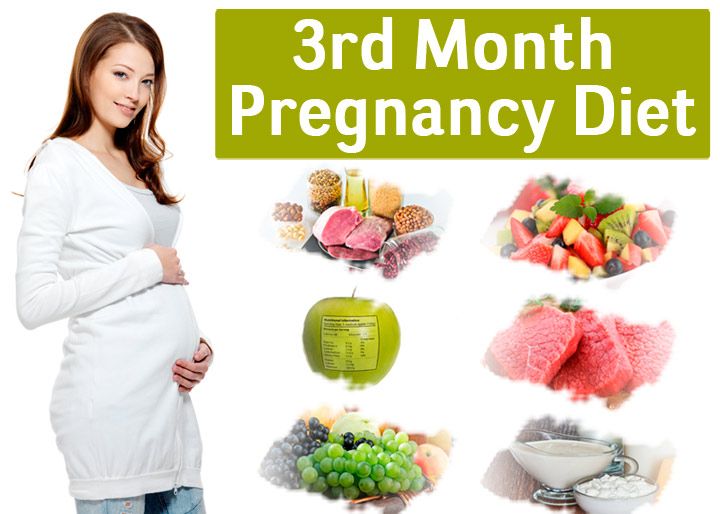
For colds and to improve immunity, it is good to use traditional medicine: tea with honey and lemon, raspberry jam, sea buckthorn berries.
Other illnesses often require medication. It is necessary to be treated during pregnancy, including taking medications. Just let your doctor know about your situation, and he will select you drugs that are not contraindicated during pregnancy.
- Sexual relations
In the second trimester of pregnancy, sex is not a contraindication if the pregnancy is uneventful.
Different women have different attitudes towards sex during pregnancy. For some, sexual relationships are a joy and pleasure. In this case, you can have sex, and it is useful. However, there are women who are psychologically unable to have sex while pregnant. Then it might be worth asking your partner to wait a little for the health of mom and baby.
Thus, sexual life in the second trimester of pregnancy is not contraindicated, it all depends on the well-being and psychological state of the expectant mother.

- Sports and fitness
Moderate exercise during the second trimester of pregnancy is very beneficial. Contraindication during pregnancy is only extreme sports and heavy power loads.
Continue to swim, do yoga, exercise therapy.
Outdoor walks are highly recommended.
However, potentially hazardous sports should be excluded. You should not ski or ride a bike, even if you feel well!
- Travel
The second trimester of pregnancy is the best time to travel! Just follow the recommendations of doctors during the trip and enjoy new experiences!
Choose a form of transport where you can get up and stretch when necessary.
You can also travel to exotic countries if you take precautions.
Flight is not a contraindication during the second trimester of pregnancy. However, take care of yourself in flight: wear anti-varicose tights, loose clothing, drink plenty of fluids during the flight, fasten the seat belt under your stomach.

Contraindications in the third trimester of pregnancy
The third trimester is the most difficult period for a pregnant woman. The child is already large, and the size of the abdomen is a significant inconvenience. The body of the future mother is being rebuilt and preparing for the upcoming birth.
There are many more contraindications in pregnancy in the third trimester than in the second.
What not to do in the third trimester of pregnancy?
- Power
In the third trimester, a woman begins to experience various inconveniences associated with digestion, such as heaviness in the stomach, heartburn, constipation. Therefore, it is necessary to review the diet and diet during this crucial period.
One of the most important tasks during this period is to monitor your own weight. Excess weight is an additional burden on the body, which can lead to complications during pregnancy.
However, keeping your weight under control does not mean starving! Diets during pregnancy are strictly contraindicated!
From the diet should be excluded foods that are not nutritionally useful, but only lead to excess weight.
 Such products include cakes, pastries, pies, buns, sweets, cookies.
Such products include cakes, pastries, pies, buns, sweets, cookies. Preference should be given to dairy products, lean fish and meat, cereals, fruits and vegetables.
Eat a balanced, varied diet in small portions.
Overeating is also a contraindication during pregnancy. You should not take part in feasts at this time.
- Drinking mode
With regard to drinks, some of them are contraindicated in the third trimester of pregnancy.
First of all, these are any drinks containing alcohol, as well as energy drinks, sweet carbonated water, especially Pepsi and Fanta, strong coffee and tea.
Preference should be given to drinks such as herbal teas, natural juices, fruit drinks and compotes with a low sugar content. It is also recommended to drink ordinary mineral and table water.
In terms of fluid intake, gynecologists currently do not limit fluid intake during the third trimester. If a woman has edema, then this is not due to fluid intake, but to a violation of the kidneys, which can lead to a severe complication, preeclampsia.
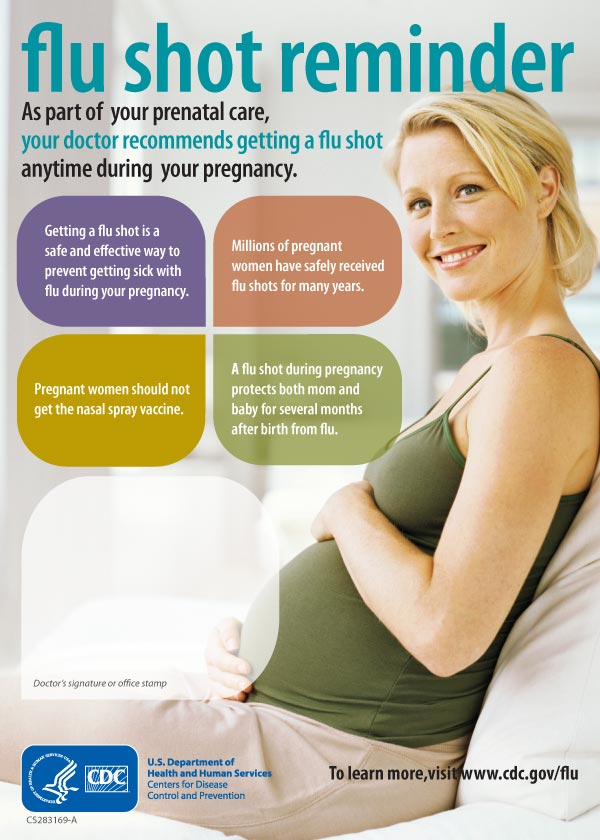
If edema occurs, you should immediately consult a doctor and take medical measures.
- Medicines
Some medicines are still contraindicated during pregnancy in the third trimester. However, the list of drugs, the use of which is possible, is expanding more and more.
Therefore, doctors often postpone the treatment of certain diseases until the third trimester, when a woman can undergo drug therapy without harming either her health or the health of her unborn baby.
The rule for taking medications in the third trimester remains the same for the entire duration of pregnancy: before taking this or that drug, carefully read the instructions and consult a specialist.
- Physical activity
The physical condition of a woman in the third trimester imposes many restrictions on physical activity.
Contraindications during pregnancy during this period are weight lifting, strength exercises, active and potentially traumatic sports.

The child grows, takes up more and more space in the woman's body, and it becomes more and more difficult for her to move. Shortness of breath appears, previously normal movements become difficult: bending or climbing stairs.
However, exercise during the third trimester of pregnancy is not a contraindication. On the contrary, walking, swimming, special exercises for pregnant women are useful.
You should rely on your own well-being. Physical education should please, improve mood and not cause severe fatigue.
- Sex life
Sex in the third trimester of pregnancy is not contraindicated. However, sex should be treated with caution, given that not all methods are appropriate at this time.
In addition, at the very late stages of sex can become a stimulation of the onset of labor. Sometimes gynecologists even advise resorting to this method to start the process of childbirth.
Therefore, if a woman is at risk of premature birth, it is advisable to refrain from sexual activity during this period of pregnancy.

- Pre-cooked fresh minced meat
